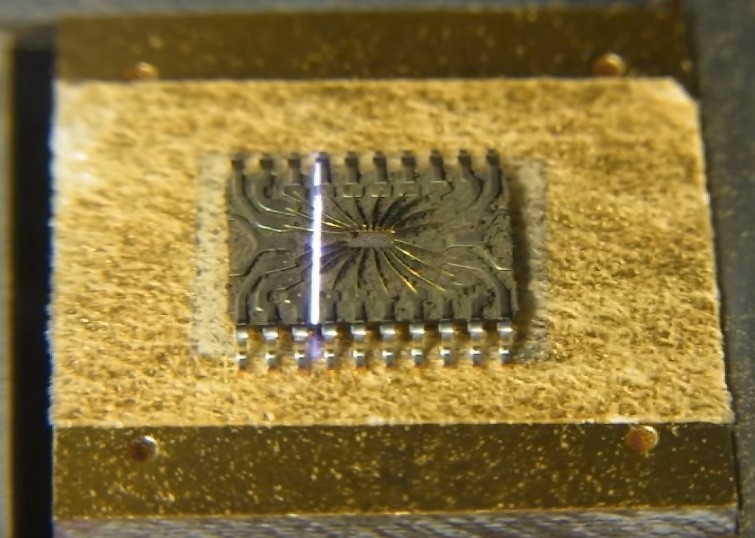 Retrieve IC PIC16LF57 Program
Retrieve IC PIC16LF57 Program
Retrieve IC PIC16LF57 Program from flash memory and eeprom memory, change the MCU PIC16LF57 status by unlock microcontroller‘s fuse bit and make PIC16LF57 processor copy;

The program for these functions is available on our website www.microchip.com. The program will be accessed by either including the source program FL51XINC.ASM or by linking FLASH5IX.ASM.
It is very important to check the return programs when using these calls, and retry the operation if unsuccessful. Unsuccessful return programs occur when the EE data memory is busy with the previous write, which can take up to 4 mS if break IC PIC16F884 code.
SDA is a bi-directional pin used to transfer addresses and data into and data out of the device. For normal data transfer SDA is allowed to change only during SCL low.
Changes during SCL high are reserved for indicating the START and STOP conditions. The EEPROM interface is a 2-wire bus protocol consisting of data (SDA) and a clock (SCL). Although these lines are mapped into the GPIO register, they are not accessible as external pins; only to the internal EEPROM peripheral after break IC PIC16F72A binary.
SDA and SCL operation is also slightly different than GPO-GP5 as listed below. Namely, to avoid program overhead in modifying the TRIS register, both SDA and SCL are always outputs. To read data from the EEPROM peripheral requires outputting a ‘1’ on SDA placing it in high-Z state, where only the internal 100K pull-up is active on the SDA line.
This program must reside in the lower half of a page. The program achieves it’s small size without additional calls through the use of a sequencing table. The table is a list of procedures that must be called in order. The table uses an ADDWF PCL,F instruction, effectively a computed goto, to sequence to the next procedure after Reverse eng microcontroller pic16c65b eeprom.